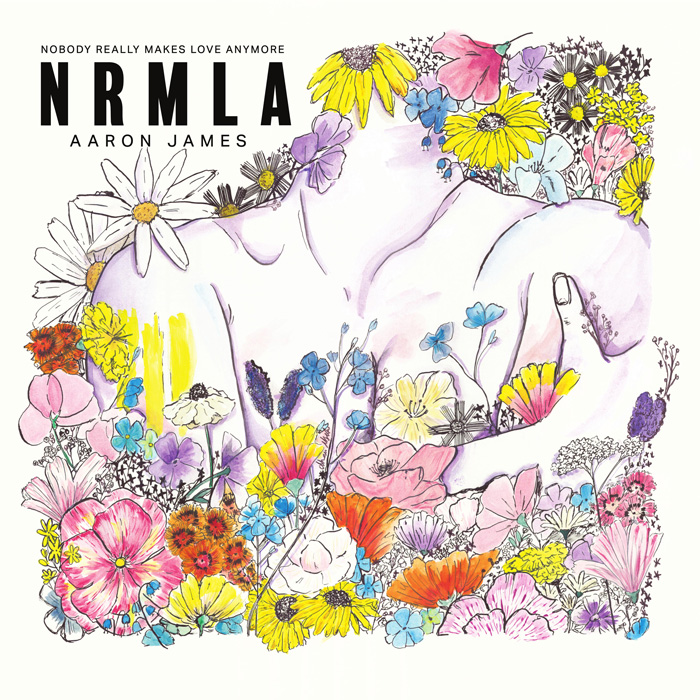There’s something about the “singer/songwriter” tag that carries lingering associations with acoustic guitars. Though most singer/songwriters employ full bands on their albums, their shows are more often solo affairs and the acoustic guitar strum ultimately propels the songs. For many past Dan Montgomery albums (he’s released seven), that might have been said.
But for his 2023 album, he wanted to get back to his roots in the South — South Jersey, that is. Those roots don’t call for mandolins and fiddles, but rather axes that flat-out rock. And therein lies the beauty of his new album, Cast-Iron Songs and Torch Ballads (Fantastic Yes Records), on which the Dan Montgomery 2+3 (with Robert Mache on guitars, keys, and vocals, Candace Mache on vocals, James Cunningham on drums, and Tom Arndt on bass and vocals) rock righteously to their bandleader’s stories.
Embracing his inner hard rocker takes Montgomery back to playing party gigs in his early teens, when, he says in a release accompanying the album, “I was the youngest in the band. The first songs I played on stage were by Grand Funk, Bad Company, and Bachman-Turner Overdrive. It was wild.”
If those classic references seem spurious, rest assured that Montgomery really knows his way around a riff. If there’s a wellspring from which perfect three chord, stop-and-start riffs flow, he has surely tapped into it. The opening of the second track here, “If I Said It,” is a prime example, as is album closer “Rock Hard,” but there are many such moments. And there are many that pair a long-sustaining electric guitar with another that chugs away inexorably, like the wheels of fate driving the lives in each song to their destiny.
Cause after he flipped out – She started to slip out
And once he shipped out – She just split town – She told me
I gotta get to Beaumont tonight – Can you help me friend
If I can get to Beaumont I can set things right
– And I’ll never have to ask again
So Montgomery sings in “Beaumont,” and that semi-desperate protagonist is a familiar one in the songwriter’s career-long chronicle of hardship. And yet, the author staying true to the particulars of each story, there’s a glimmer of hope in “Beaumont” as well. It’s a world unto itself, promising escape. But as for hope, this album holds more than a glimmer, it positively glitters. Depending on which song you choose, that could be Gary Glitter or actual, shiny glitter, as in the song by that name:
Well it seemed so sweet so sinful – Looked so much better in the dark
Now it seems so simple – And you wear it like a scar
You’re never gonna get all that Glitter off you
You’re never gonna get all that Glitter off you – Now you gotta go home
True, that’s a song more in the “torch ballads” segment of the program, but with this album, a chugging riff is not far off, as in the track immediately before “Glitter,” which begins with an uncanny homage to that other Glitter – Gary, that is. Anyone familiar with his “Rock ‘n’ Roll (Part 2),” a classic 1972 instrumental single with one of the most distinctive sounds of its era, will crack a smile when “Sort It All Out” begins, though it soon enough becomes its own thing entirely.
And speaking of distinctive sounds, the album’s also graced with one of Memphis’ greatest guitar alchemists, Robert Mache, who, as usual, has co-produced these tracks with Montgomery in “The Shack in the Back” studio. His unerring sense of guitar tone is a crucial ingredient to all those riffs, solos, swipes, and jabs, and the deft keyboard textures (also supplied by Montgomery and guest player Rick Steff) flesh out the powerful arrangements. Ace sax man Jim Spake also makes an appearance.
All this, and the spot-on background vocals from Candace Mache and others that give the music an epic sweep, would be for naught if these weren’t, as advertised, cast-iron songs. Which I take to mean songs that have been whittled and crafted to the point of holding up over time. Songs for a lifetime, or a few.
And the real cast-iron masterpiece of the album, it turns out, isn’t a rocker at all. “Baby Your Luck’s Running Bad” is a perfect distillation of the kind of metropolitan soul that ruled the airwaves a half century ago (close to New Jersey by way of Philadelphia), sung with dry restraint by Montgomery, who could have given Johnny Rivers a run for his money back in the day:
If you wanna see God laugh
Just tell him your plans
He’s a spiteful so and so
What a spiteful so and so
Below, a solo performance of the same song, but don’t sleep on the album version.
The Dan Montgomery 2+3 plays B-Side Memphis on Sunday, July 30, 8 p.m.



